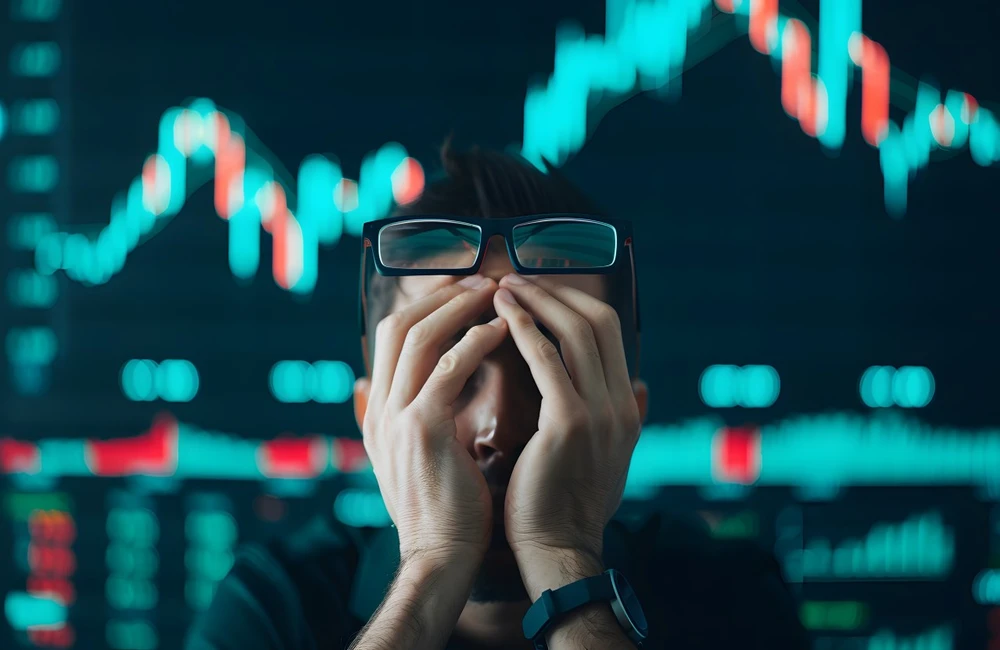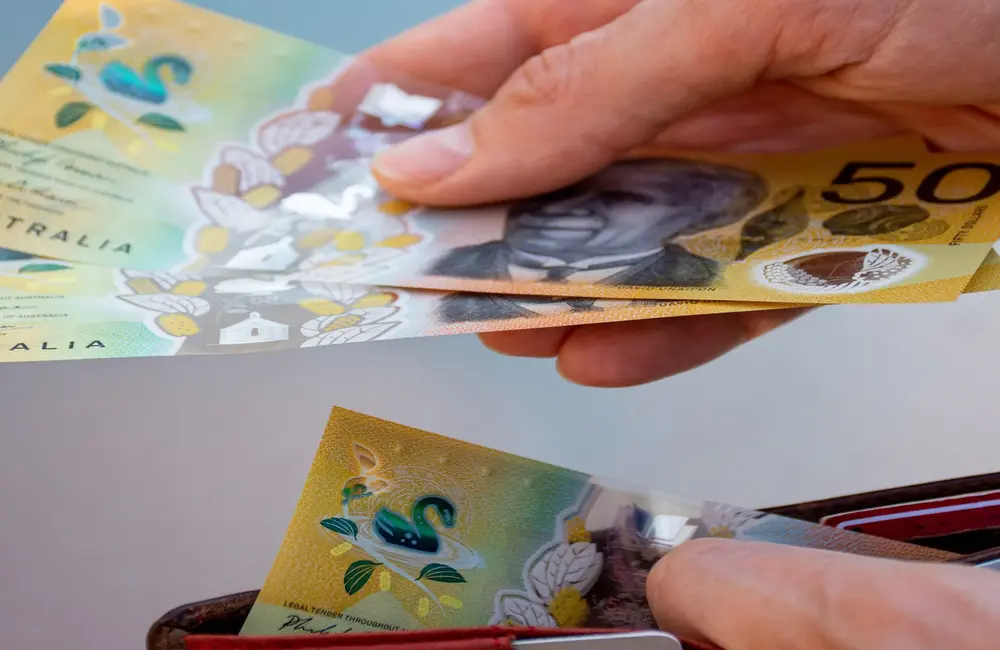ASX futures were 17 points or 0.2% higher at 7471 at 8.00 am on Thursday, implying a good start to the day.
US stocks climbed in most of the day here, closing a step off session highs overseas. The Nasdaq Composite topped the major indexes as it gained 2.03% on Wednesday. The S&P 500 climbed 1.1 percent after it dropped 0.3 percent on Tuesday. The Dow Jones Industrial Average had gained 1%.
Investors closely watching US first quarter earning seasons for signs about inflation impact on business. America’s largest bank and a bellwether for the broader economy, JPMorgan reported a 42% drop in first-quarter profit, as its chief executive, Jamie Dimon, cautioned that inflation and the war in Ukraine presented major threats to the US economy. Investment manager BlackRock and Delta Airlines also announced results.
Bond markets added to recent gains for a second day in what looked like a move reflective of traders disappearing bets on how far and fast the US Federal Reserve would raise interest rates. US 10-Year Treasury Notes yields declined 2.70% to 2.72% a day earlier. Yields on shorter duration bonds, which are more sensitive to interest rates, fell as well. The moves came as data showed US producer prices rose by the most on record.
Data released on local shores showed the S&P/ASX 200 index tacked on 0.3% higher on Tuesday in the gainer camp of energy companies. The materials and energy sectors were the strongest of the day, finishing up 0.6% and 1.0%, respectively.
Iluka Resources gained 0.9% after the miner said it plans to demerge its Sierra Leone mineral sands unit this year.
EML Payments shares rose 10.5% after the Australian Financial Review said that the company had held talks with private equity group Bain Capital for a takeover. The talks have now ended. Also among the best performers were Paladin Energy, which added 9.6%, and technology company Appen Limited, gaining 4.8%.
Iron ore fell 2.2% to US151 in commodity markets 40 per tonne; gold futures added 0.4% to US$1,984.70; Brent crude oil surged 4% to US$108.82.
In bond markets, the yields on the Australian 10 Year bond stood unmoved at 3.07%.
It was buying 74.54 US cents at 8.00am, an increase from previous close of 74.51. The WSJ Dollar Index, which tracks the US dollar against 16 other currencies, eased to 92.35, the strongest level since May 2020.
Asia
Chinese stocks closed lower, pressured by its continuing Covid-19 resurgence and weak trade data, Oanda markets analyst Jeffrey Halley said in a note. He points out imports stagnated in March, falling 0.10% versus a forecast 8.0% increase, which is raised alarm over the magnitude of China’s deceleration. Auto makers and airlines slipped. Shares of BYD Co., Dongfeng Automobile and SAIC Motor Corp slid 0.5%, 1.4% and 1.3%, respectively, and Air China slumped 1.6% while China Southern Airlines dropped 3.0%. The Shanghai Composite Index was off 0.8% at 3186.82, the Shenzhen Composite Index fell 1.7% to 2012.18 and the ChiNext Price Index gave up 2.3% to 2466.84.
Hong Kong stocks finished higher, with the Hang Seng Index, the benchmark, up 0.3% at 21374.37 as shares of oil majors and property companies rose. Brent crude prices in the Asia session sent oil majors higher, with Cnooc, PetroChina and Sinopec climbing 3.6%, 2.0% and 1.5% respectively. On the other hand, the property sector had probably bottomed out, and valuations are now attractive, CGS-CIMB said. Hang Lung Properties, China Overseas Land and China Resources Land gained 2.4%, 2.3% and 2.2% each, respectively. The Hang Seng Mainland Properties Index gained 0.8% to 4015.45.
The Nikkei Stock Average ended up 1.9% at 26843.49, as the yen recently lost ground and fears of rising borrowing costs eased. Oil-related stocks climbed as oil prices gained, aided by China’s announcement Tuesday on some easing of the Covid-19 restrictions affecting Shanghai. Petroleum firm Idemitsu Kosan climbed 1.6% and Eneos added 0.6%. In shipping stocks, Nippon Yusen gained 4.8% and Mitsui O.S.K.
Europe
European markets were mostly down after mixed trading in Asia and before Wall Street opened higher, as expected. The pan-European Stoxx Europe 600 and the French CAC 40 fell 0.4 percent, while the German DAX was down 0.9 percent.
“While today is also the Bank of Canada’s policy decision meeting, with a hike expected, the real focus is on earnings from JPMorgan as the Q1 earnings season heats up,” IG says. The European Central Bank is meeting Thursday, and investors are looking for more details on plans to restrain stimulus measures.
“ECB speakers have definitely moved a touch more hawkish recently,” said Jeremy Gatto, a multi asset investment manager at Unigestion. “They appear to be agreeing now that inflation may prove a problem.” “It’s hard to get excited about Europe.”
In London, the FTSE 100 led Wednesday’s disappointing charge across European bourses, thanks to some resilience in basic resources and energy for the London market, according to CMC Markets UK.
Crude-oil prices kept climbing, lifting BP and Shell to the green. Tesco shares tumbled 2% on the day after the supermarket chain said it expected to end the 2023 fiscal year with a lower figure for adjusted operating profit after higher prices affected shopping behaviour.
In other news, GlaxoSmithKline revealed a 1.9 billion pound buyout of Sierra Oncology and Ted Baker rose 3.3 percent after U.S. private equity house Sycamore Partners Management LP confirmed it would take part in the official sale of the company.
North America
US stocks advanced and bond yields declined as the first earnings reports from corporate giants trickled in and investors grappled with the highest inflation in four decades. Stocks were higher for most of the day, finishing just below session highs. The Nasdaq Composite powered the major indexes higher on Wednesday, ending the day up 2.03%. The S&P 500 rose 1.1 percent after closing down 0.3 percent on Tuesday. The Dow Jones Industrial Average rose 1%.
The yield on the 10-year Treasury note slipped to 2.688%, down from 2.724% on Tuesday, in a decline that stretched into a second day. Yields fall when prices rise.
Airline stocks soared after Delta Air Lines announced a quarterly loss but said it was back in the black in March and would likely be profitable for the second quarter. The price of Delta’s stock gained by more than 6 percent, or $2.40, to close at $41.02, while shares of American Airlines rose by more than 10 percent, or $1.82, to close at $18.95. Southwest Airlines gained 7.5%, or $3.23, to close at $46.05.
Shares of JPMorgan Chase fell 3.2 percent, or $4.24, to $127.30 after the bank reported a 42 percent decline in profit for the first quarter as higher costs and lower fees from its Wall Street business weighed on results. Earnings by America’s largest bank often act as a bellwether for the wider economy and can provide insight into the financial health of US consumers.
Asset manager BlackRock fell $1.09, or 0.2%, to $715.74, after posting higher first-quarter profits but a drop in assets under management. Goldman Sachs, Citigroup, Morgan Stanley and Wells Fargo are scheduled to report earnings Thursday. And while nine of the S&P 500’s 11 sectors finished up on Wednesday, financials shedding less than 0.1 percent and utilities were a few ticks in the red.
And investors are looking for clues in first-quarter earnings about how record inflation is affecting everyone from auto makers to energy providers.
“When you look at it on a sector basis, the sectors that have been able to pass some of those price increases to consumers have done better this year,” said Mona Mahajan, a senior investment strategist at Edward Jones. “That’s a trend we think is going to continue, at least on the short-term basis.
Stocks have faced pressure in recent days as concerns about inflation have created uncertainty for how aggressively the Federal Reserve could act to tame it. Consumer prices surged again in March, up 8.5% from a year earlier, data released Tuesday showed. The monthly rise was precisely as economists expected, and core inflation which excludes food and energy came in slightly lower than predicted, Deutsche Bank said.
“The inflation data was clearly not very good, but perhaps we’re kind of around the peak and we’ll start to see somewhat of a disinflation trend over the next months,” said Esty Dwek, chief investment officer at FlowBank. “With bank earnings starting, we can have some guidance. It’s really going to be about the guidance that we get through the rest of the year.”
The US producer-price index, another measure of inflation, climbed 11.2% in March from a year earlier, the Labor Department said Wednesday. The increase was more than had been anticipated and was the biggest gain since records began in 2010. The jolt suggests disruptions in critical supply chains are still pushing prices higher.
All of which is raising the cost of doing business for producers, including volatile energy and commodity prices caused by Russia’s invasion of Ukraine, and lockdowns in parts of China related to Covid-19 that threaten more disruptions.
Oil prices advanced, with the global benchmark, Brent crude up 3.96%, or $4.14, to $108.78 a barrel. Energy demand in China is being monitored by traders as some lockdown measures in Shanghai have been relaxed, but more factories in the region, including two that operate for Apple suppliers, have shut down production.
The International Energy Agency said it expected further disruptions to energy supplies. But oil output from Russia was likely to drop by nearly 3 million barrels a day starting in May, a decline greater than had been predicted by other analysts, it said on Wednesday.
The pharmaceutical company Antares Pharma skyrocketed 49.2 percent, or $1.84, to $5.58 after The Wall Street Journal reported that Halozyme Therapeutics was close to a deal to purchase it for about $960 million. Gap Inc. shares jumped $1.10, or 8.2%, to $14.46 and helped drive a 2.5% gain for the S&P’s consumer discretionary sector. Marriott International Inc. rose 7.5%, or $12.30, to close at $175.54.

























